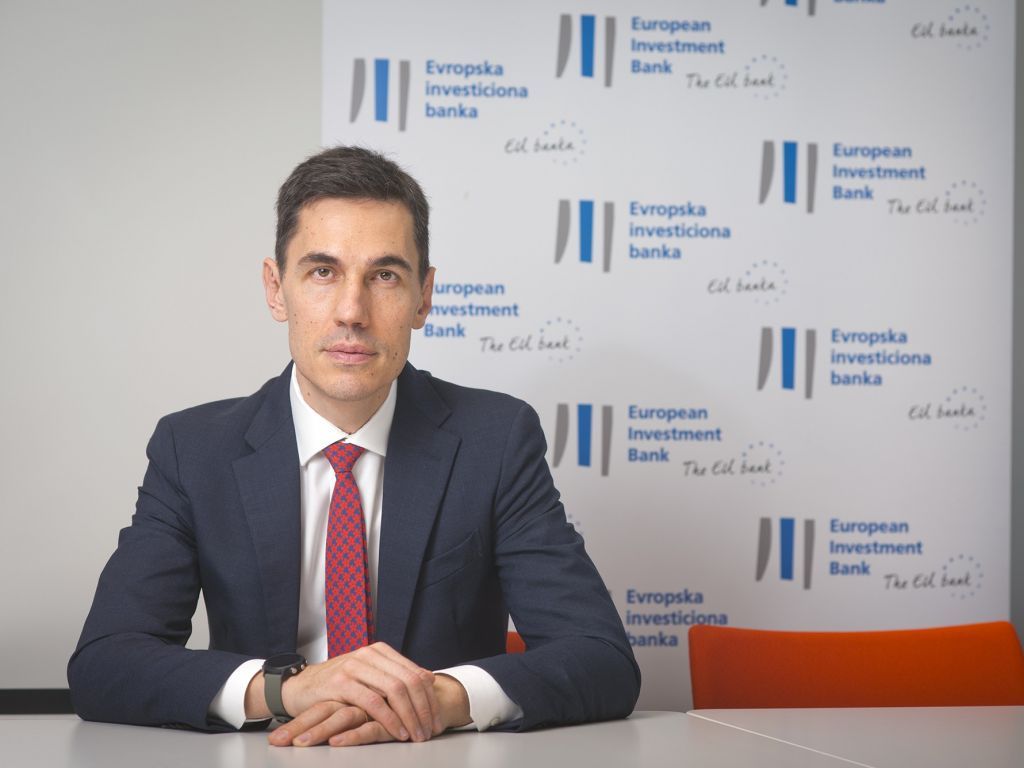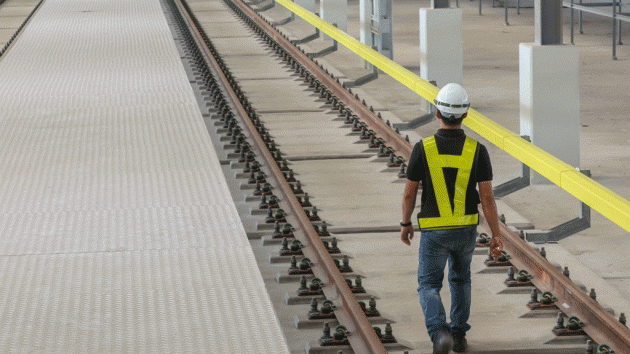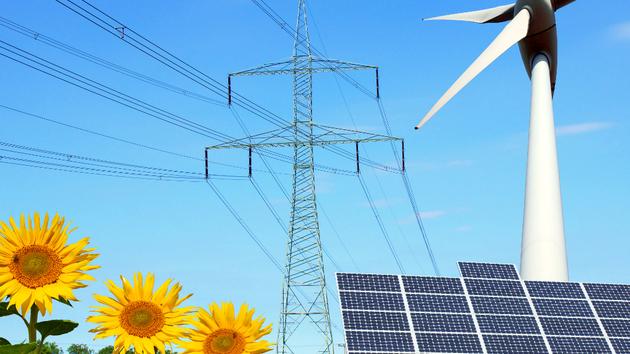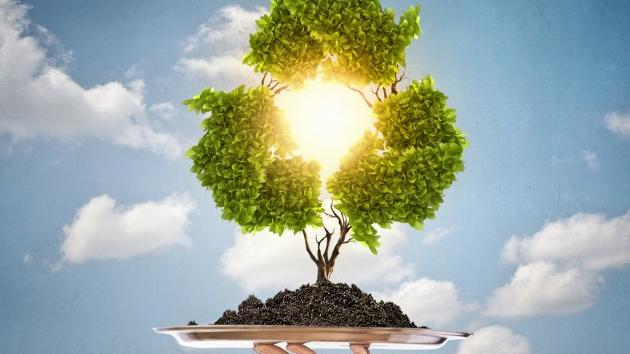Alessandro Bragonzi, Head of Regional Representation for Western Balkans at European Investment Bank – European Trains for Southern Railway, Green Future for Serbia
Source: eKapija
 Tuesday, 19.04.2022.
Tuesday, 19.04.2022.
 14:12
14:12
 Tuesday, 19.04.2022.
Tuesday, 19.04.2022.
 14:12
14:12
(Photo: Miloš Lužanin)

We talked to Alessandro Bragonzi, Head of Regional Representation for Western Balkans at European Investment Bank, about the essence and the scope of their aid to us. With the sewer and sunken ships on the agenda, we asked our interviewee which projects are currently in the focus of the EIB in Serbia.
– For the first project, it’s a EUR 35 mil loan provided to the City of Belgrade for the waste water treatment plant in Palilula and the connected sewage project – Bragonzi says. – The other project is the part of the large investment for inland waterways. It’s a 100 million loan for the Ministry of Transport, for improving the navigability of the Sava and the Danube rivers. It is a well-known issue that affects one part of the Danube river, where ships sunken at the end of WW2 reduce the navigability.
There’s much more regarding the projects the EIB is financing. Over the past 10 years, EIB has financed more than 4.5 billion of investments in Serbia, mostly into the transportation sector, that includes roads, inland waterways, railway rehabilitation and modernization. We also finance substantially the private sector through credit lines, to support the SME sector. Combined together it’s the largest portion of our portfolio, with 43%. Roughly EUR 2 billion over the past decade has been given to SMEs through this channel.
eKapija: What will be the priority of the EIB for investments in Serbia in the upcoming period?
– In terms of priorities, transport remains, and particularly the development of the Trans-European network. We are moving from traditional, more polluting transport modes, roads, towards greener modes, particularly railways. We have a significant project for the connection Niš-Dimitrovgrad, and are working together with the Serbian government and our partner EBRD on financing the Belgrade-Niš railway, and further to Preševo. We are also working on connection towards Croatia (Šid) and improving the Niš railway bypass, to improve the overall urban mobility plan of the city.
eKapija: While working on main railroads, Serbia is actually removing hundreds of kilometers of rail tracks…
– Just to give some clarification on the role of EIB. We are not the promoter of projects: what EIB is doing is financing the projects promoted by the government. Of course, our aim is to support more sustainable and greener forms of transport and we believe the existing railway network could be better utilized through modernization, enabling the switch from road to railways. We are able to finance whatever we are asked, provided that it fits into our strategy, but we are ultimately not responsible for the decision which network to develop. Our main targets are the international arteries, connecting Serbia with other countries, which improve trade and connectivity with the region as well as with the EU. We would be happy to assist the development of even the regional railways, but it has to be the strategy of the government.
eKapija: Serbia has had a tradition of taking loans from China, Russia, or Azerbaijan. Can your institution offer a viable alternative to that, in terms of more favorable interest rates, for instance?
– I believe so. The EIB is the bank of the EU, we finance that jointly with the EC, in particular under what we call “Team Europe Approach”, which is a brand name that started during the immediate response to the Covid crisis. Its flagship projects under a strategic investment plan encompass EUR 9 billion of EU grants and a total of almost 30 billion in investments in the next 5 years.
I can say that definitely we can provide the best available financial conditions, due to AAA rating of our institution, which provides us with the possibility to find ourself on the market with the most convenient financing terms and pass it on further to the beneficiaries, that is to countries like Serbia. On top of that, it has the advantage of working with the EU - as I mentioned before, under the Economic investment plan, they made available a total of EUR 9 billion that are grants, they are non-repayable funds. That means that the county can get access to funds to complement our loans, which will decrease the overall cost of the financing of any investment and therefore makes this more attractive. To give you an example, financing for railways can go up to 40% of the total investment cost. And for prevention of waste water, grants can arrive up to 70% under the Western Balkans investment plan.
eKapija: And it is a model that’s already working?
– It’s a model that actually works from 2009, when the Western Balkans Investment Framework started operating. It is a facility that gives countries like Serbia access to investment grants and technical assistance support for projects that deal with connectivity, in the widest sense: from physical to digital connectivity - for example, broadband is now included in the scope of this investment - energy networks as well.
Besides that, we ensure that a public procurement is done for selecting contractors, consultants, to ensure that the most competitive offers are received, all the adequate controls and assessments are made, as to environmental and social concerns. All is done in the most transparent way.
In terms of weather this is preferable to other sources of financing, I will say that for the Corridor 10 Belgrade-Niš, this was the decision of the government of Serbia. We are particularly happy, as this is very important and significant projects of nearly EUR 2 billion.
eKapija: When could the project start?
– We need to ensure that the project has been adequately prepared and all the assessments have been done in terms of its implementation. One part of it is ready actually: it is anticipated that the largest part of section Stalac-Đunis will be tendered over this year and that the works will start by the beginning of next year. It is more than 230 km of rail, and the most of alignment doesn`t allow for the higher speed, so there is a lot of expertise and technical analysis to be done.
eKapija: Is Serbia using these grants within that project?
– Serbia has already asked portion of this grant late last round of approval by the West Balkans Investment Framework. They have obtained approval for EUR 80 million from the European Commission for Stalać-Đunis. For the removal of the sunken vessels, a grant was also obtained from the European Commission.
__________
The EIB is financing large production facilities of batteries in the European Union. These are being used as a showcase to discuss potential partnership here in the region, maybe Serbia itself, for the development of a battery plant.
__________
eKapija: Are you going to continue financing roads in the future?
– We do continue to finance roads, in particular to support connectivity, but we are also increasing the focus on the sustainability and safety, particularly secondary roads across Serbia, so there is a number of projects beyond the traditional arteries of highways. We have an existing project, and are already searching for new projects with the support of the EC. We also working on the improvement of urban mobility, and we have a plan to develop with the City of Niš, for improvement of the urban mobility framework. Technical assistance grant was given to the City of Niš to develop its urban mobility plan.
eKapija: Last year the EIB allocated some EUR 560 mil for the small and medium enterprises within the region of the Western Balkans. Out of it, how much is for the Serbian SMEs?
– I’d say that the largest portion of it went to Serbia, particularly last year. We signed over EUR 290 million. We had one facility which was granted to the Development Fund of Serbia. All this was within the response to the Covid 19 crisis and in support the SMEs in order to continue operating the business and also to improve their capacities and looking at expansion possibilities. We opened a new transition channel, as mentioned. The traditional channel for financing SMEs in private sector are partner commercial banks. A year before, we signed some EUR 105 million for the support of SMEs, and we are also developing new forms of support to the SMEs, for example the social impact of the investment, so we particularly support the youth, women entrepreneurship and also companies that employ more vulnerable groups.
eKapija: You mentioned the Covid crisis and the way it impacted the companies and the way they function. But then came the Ukraine crisis... Are you preparing a new package in order to tackle the new crisis, and do you have feedback from companies, the SMEs, if they have actually managed to improve the business or at least to remain afloat?
– I will say that the availability of the liquidity is essential for the SMEs, to be able to continue operating and that is the most important part of our support through the banks. We need to ensure that the banks are ready to continue offering this kind of support. What we are looking for, together with the European Commission, and it was planned before the start of war in Ukraine – is more focused support for what we call risk sharing instruments for the private sector, that is for the EIB, thanks to the Commission guarantees to cover part of the risk of that investment. The liquidity has become less of an issue for banks during the past few years, thanks to the low interest rates, and what has become more and more important is to support the appetite to risk, to invest, to provide financing to the companies. They need to receive certain instruments to allow them to for example reduce collateralization requirements and to extend maturities.
And of course, the Ukraine crisis brought skyrocketing energy prices, so that means the companies are looking for the possibility to develop access to renewable energies, in the form of, for example, small solar installations. In that respect, the EIB in Serbia is supporting, together with our partners, the UNDP, the Swedish Embassy and the SIDA, the Swedish Development and Cooperation Agency, a program called Green Agenda for Serbia, funded by the European Commission. And one of the areas is to look at how to scale up the financing of energy investments of SMEs and we will provide for example technical assistance to banks to develop together with the client investment into energy efficiency and renewable energy.
One part of this program of Green Agenda for Serbia has been launched recently and it’s dedicated to circular economy and is promoted by the UNDP.
__________
Our interviewee believes that the volume of the funds that have come to the country from the EU is perhaps not that well known in Serbia.
For example, the EIB financed the south and east legs of Corridor 10, through the Grdelica Gorge and the Sicevo Gorge, and over EUR 250 million was given over the last 20 years toward the financing of the healthcare sector. We started in 2003 with the reconstruction of 20 hospitals, and then scaled up the support of clinical centers (EUR 200 million). We also have substantial investments in the public sector and social development, for instance, support to science and technology park in Niš and Novi Sad. We do upgrade of university laboratories and educational facilities, including the Faculty of Organizational Sciences in Belgrade. We are now approving in particular the financing of dual training for the secondary education and vocational training and that is expected to be signed later this year. Maybe to mention other flagship projects, I will also say that we can mention EUR 100 mil for inland waterways. It’s worth mentioning support for the environment, particularly water supply, we are now working with the Public Investment Management Office in Serbia for projects in municipalities dedicated to improving water supply networks. We help local self-governments in the fields of green markets, public street markets, energy efficiency… The most recent investment in the digitalization is that we have assigned a EUR 70 million loan last year for the development of the 5G technology and the expansion of the 4G mobile network. We invested more than EUR 4.5 billion in the last 10 years.
__________
eKapija: Do you work with bigger investors into renewable sources of energy, like wind parks?
– We are discussing with public utilities and the investors the development of renewable energy. With energy crises, it`s becoming more and more important to develop new and large investment projects. But we also need to ensure that there is sufficient capacity of the system to manage the intake of new renewable energy sources and ensure the balancing of energy.
eKapija: Would it be possible for you theoretically to finance reversible hydroelectric plant in Serbia?
– This is possible, of course. This is something we are discussing with the authorities, because it’s a potential investment that would ensure the continuity of energy supply. It is a project that takes some time, because it requires the project preparation, as there are of course important environmental aspects to be looked at.
Mirko Radonjic
Companies:
 Evropska investiciona banka EIB
Evropska investiciona banka EIB
 UNDP Beograd
UNDP Beograd
 EBRD Evropska banka za obnovu i razvoj Beograd
EBRD Evropska banka za obnovu i razvoj Beograd
Tags:
European Investment Bank
EIB
Alessandro Bragonzi
European Commission
UNDP
Swedish International Development Cooperation Agency
SIDA
Danube left bank sewer
waste water treatment
sewer
dredging of sunken German fleet
sunken German fleet
grants
loans
credits
Belgrade Nis railway
Southern Railway
Stalac Djunis section
removal of rail tracks
reconstruction of roads
construction of roads
Corridor 10
improvement of the navigability of the Sava and the Danube
Team Europe Approach
Western Balkans Investment Framework
connectivity
5G network in Serbia
battery plant in Serbia
urban mobility plan Nis
small and medium enterprises
SMEs
financing small and medium enterprises
financing SMES
credits for SMEs
risk distribution instruments
circular economy
renewable energy sources
Green Agenda for Serbia
reconstruction of hospitals
renewal of clinical centers
STP Novi Sad
STP Nis
Faculty of Organizational Sciences
construction of a reversible hydro power plant
construction of a RHPP
Comments
Your comment
Naš izbor
Most Important News
Full information is available only to commercial users-subscribers and it is necessary to log in.
Follow the news, tenders, grants, legal regulations and reports on our portal.
Registracija na eKapiji vam omogućava pristup potpunim informacijama i dnevnom biltenu
Naš dnevni ekonomski bilten će stizati na vašu mejl adresu krajem svakog radnog dana. Bilteni su personalizovani prema interesovanjima svakog korisnika zasebno,
uz konsultacije sa našim ekspertima.


 Izdanje Srbija
Izdanje Srbija Serbische Ausgabe
Serbische Ausgabe Izdanje BiH
Izdanje BiH Izdanje Crna Gora
Izdanje Crna Gora


 News
News










